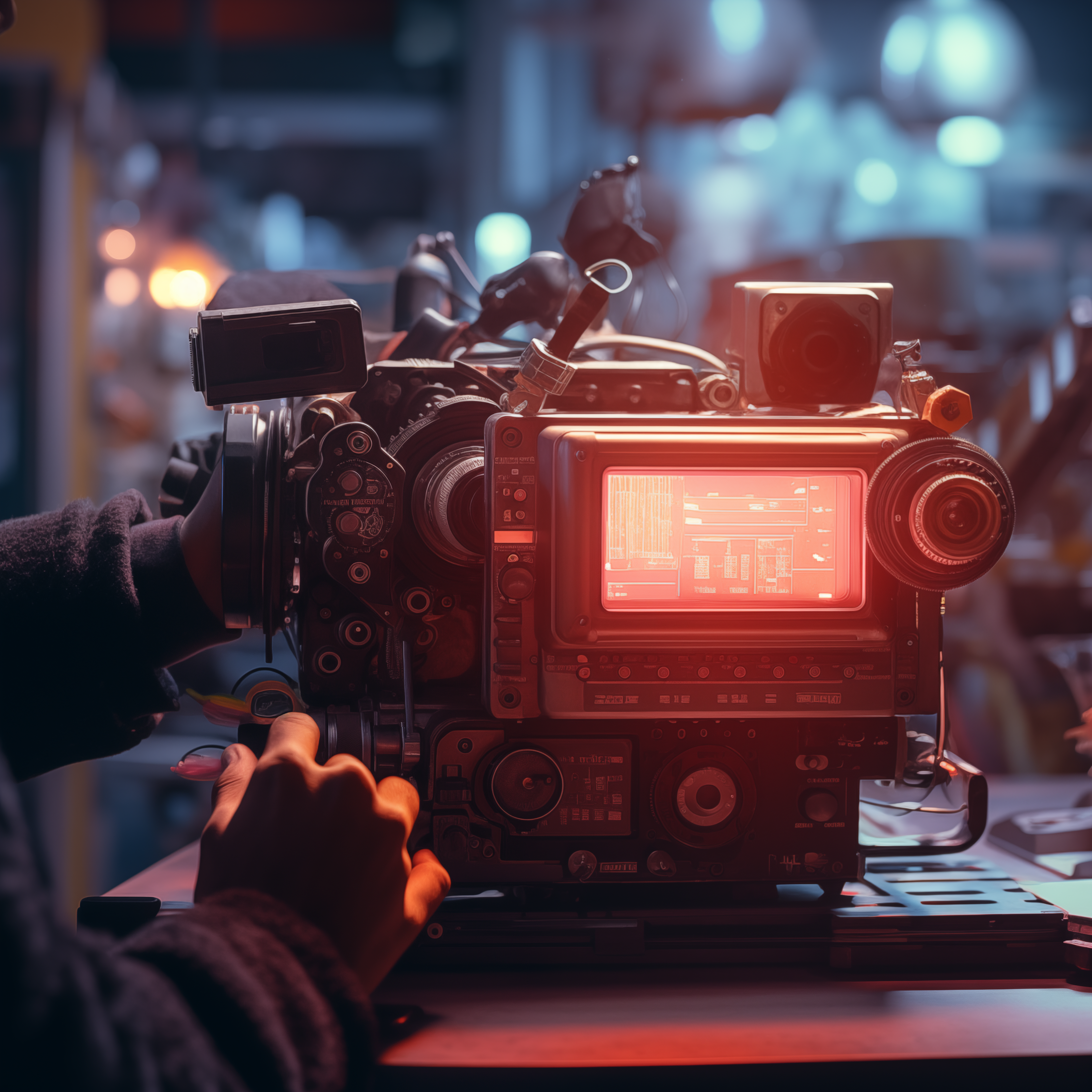Is AI Going to Replace Video Editors?
Here at Luma Creative, we’re excited about the possibilities AI video editing tools offer! As a San Francisco video production company working extensively within the corporate-tech sphere, we’re at the epicenter of innovation for artificial intelligence. We are constantly asking ourselves: “Is AI going to replace video editors?” The answer isn’t as black and white as you’d think.
As the tech giant Meta states in their launch of ‘Make-A-Video’ AI software: “Generative AI research is pushing creative expression forward by giving people tools to quickly and easily create new content…” Therefore, does this mean it’s going to be faster and easier to create content? The answer is clearly: Yes!
AI video editing tools: practical application
Modern editors juggle various tasks: repetitious technical, creative choice, narrative shaping, and concept honing tasks. These tasks, informed by foundational editorial skills, take time and connection to the client’s vision. With the emergence of AI supplemental tools in the past five years, a variety of use cases have emerged. As ProGrade Digital makes clear: “AI-powered editing tools can automatically analyse raw footage, recognise key moments, and automatically generate edited versions of videos…”.
At a higher level, many companies (e.g., Adobe) are creating generative AI tools to do everything from simplifying editor workflows to reimagining the way we create. Here at Luma Creative, we’ve adopted several AI systems into our workflow. Adobe Podcast refines source audio and cleans up background audio (An example of Luma’s work seen here in our interview with Professor Carl June on the 2023 Cellares production). Meanwhile, Scene Edit Detection from Adobe Pro guides A-to-B transitions during interviews. These programs significantly reduce time spent and offer our editors the ability to focus on the bigger picture. Of course, there are far more applications to be explored, and we’re excitedly experimenting.
So, what’s the verdict?
At Luma Creative, we agree with Viostream’s article on the topic: “While AI has undoubtedly brought about many positive changes in the industry, it is important to recognise that it cannot fully replace human video editors.” This is due to the complexity of editing decisions made outside the sphere of digital manipulation. “AI is not yet able to replicate the creative decision-making process that a human editor has honed. It’s important to leverage these skills to produce the highest quality content possible.” Simply put, human content needs human oversight, and when you hire a human, you hire human perspectives and human sensibility.
Why these skills matter
The largest misconception about most AI programs is that anyone can use them with little-to-no training. Thus creating a democratized space where anyone can be an editor. While many AI programs do simplify previously complex editing tasks, non-editors nonetheless often lack the experience to avoid making common video production mistakes. Understanding both the algorithm and the artistic problem space reveals desired results, as AI tasks must be specifically formatted. It can be challenging to find reliable AI tools. Even minor adjustments to algorithms can cause footage to fall flat.
Prompt engineers are those who understand how to speak with AI effectively. Here’s a few thoughts found in Sudhakar Manivannan’s (Senior Manager, Software Engineering at Walmart Global Tech India | GenAI) LinkedIn article on the matter:
“Crafting the right prompt can ensure that the AI system generates responses that are both accurate and pertinent to the user’s needs. This improves user satisfaction and increases the likelihood of positive outcomes…Users often have unique requirements, and prompt engineering allows for tailored interactions with AI systems, catering to individual preferences and goals.”
At Luma, it’s evident that prompt engineering is critical for editors to adopt. As Business Insider puts it:
“Unlike traditional computer engineers, who code, prompt engineers write prose…”
As our article on corporate video production reminds us, one should never: “…cut corners on production value…” Hiring practices should reflect the best use of these new tools. Using AI should not come at a cost for quality – even when it’s exciting how fast a project can come together.
So, how does it all add up?
Here at Luma Creative, we find great potential in the AI space. We see a world where AI video editing tools benefit everyone, from editors to clients. With AI, video editors can learn to use AI tools so that they can focus on uniquely human skills. Hopefully you now learned a little more about if AI is going to replace video editors. As an editor, prompt engineering skills appear essential. When addressing production, AI is low-cost. It also reduces simple and tedious jobs. Human editors make your video accessible and meaningful to your viewers. With AI already a crucial part of our process, we are excited for future advancements.
Simply put, together is better.
Looking to learn more about our video editing techniques? Reach out to learn more!

